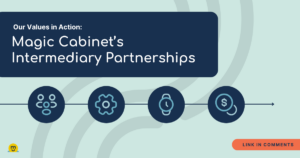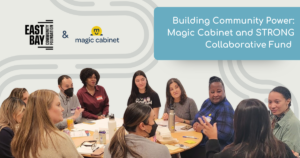
To the Editor:
Why does philanthropy continually ignore critical feedback from the nonprofit organizations we exist to serve?
Many of us at the foundation I lead — Magic Cabinet — have significant experience in the nonprofit world. But we have never engaged in the work our grantees know intimately, including running an emergency women’s shelter offering services in 34 languages and dialects or operating a community space for LGBTQ+ Pacific Islanders. Why would we have any opinions or requirements on how those organizations should operate? We would never presume to be experts in hedge-fund management, let alone what it takes to undo the racist systems that perpetuate inequities. Why do so many donors feel like they can and should presume expertise they don’t have?
We developed our philosophy of philanthropy with a clear understanding that the community we supported would determine who should be our nonprofit partners and how funds would be allocated. That’s not to say that we’re flippant about the distribution of philanthropic funds. It simply means that we’ve created a framework that aims to remove our biases and lack of expertise on grantee issues from the decision-making process. In doing so, we purposely refocus that power to our nonprofit and community partners.
This approach acknowledges that they are the experts. Our team is there to find impactful organizations, host them, answer procedural questions, ensure the checks get mailed once decisions are made, and learn how the foundation can be a more effective grant maker. A philanthropist must make valuable tools available — money, connections, trust, and true partnership — then get out of nonprofits’ way to let them achieve their missions, not ours.
The onus must be on us, the philanthropists, to initiate the relationship and demonstrate trust by relinquishing our power and directing it toward community organizations. The time has come to step back from evaluating nonprofits and turn the mirror on ourselves.
Stop asking your grantees if they’re making an impact on your mission. Instead, ask yourself how you can become a nonprofit partner, not their director.
Christina Engel
Executive Director
Magic Cabinet
Originally published on The Chronicle of Philanthropy



